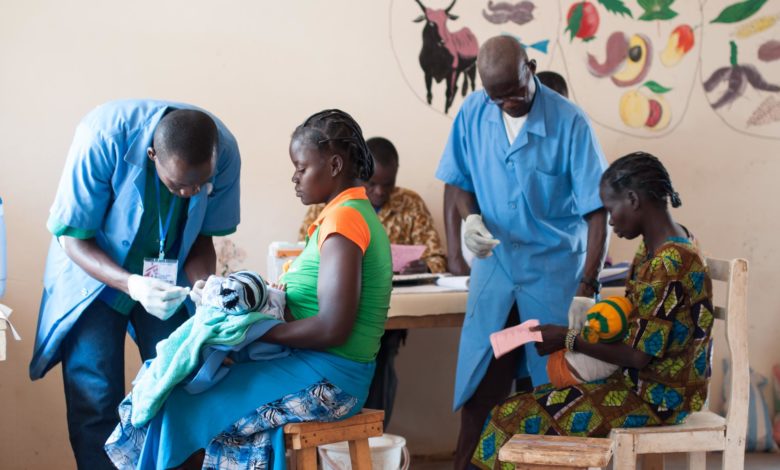MSF Creates Centre For Victims Of Sexual Violence In Bangui, CAR

The international medical humanitarian organisation, Medecins Sans Frontieres or Doctors Without Borders (MSF), has created a centre in the Central African Republic capital Bangui, to treat victims of sexual violence.
The Centre which commenced its operations yesterday August 1, 2020, is situated in the Batignolles neighbourhood behind the Parc Cinquantenaire in the first district of the capital. It will integrate the medical services which were hitherto offered by the organisation at the SICA hospital.
A communiqué issued by MSF revealed that though sexual violence in the national capital has not attained the levels seen at the peak of the unrest in the country in 2013, it has however spiked within the various communities in the capital recently.
“Until 2019, the majority of sexual aggressions were perpetrated by armed individuals. This tendency has been reversed these past years with 67% of aggressions committed within the communities involving civilians in 2020 as against 30% in 2018. The proportion of minors sexually violated has also augmented from 37% in 2019 to 50% since the beginning of 2020”, MSF stated.
MSF notes that access to medical, psychological and psychosocial help, protection and economic security are the essential elements to all responses to sexual violence, adding that throughout the country, notably in Bangui, these services are not accessible to a vast majority of survivors of sexual abuse.
“With this Centre, MSF engages to furnish a global programme of high-quality free treatment accessible and inclusive made up of services adapted to women but also men, to children and adolescents”, declared Yann Le Boulaire, Coordinator of the Tongolo Centre Project.
Survivors of sexual violence who would come to the structure would receive treatment such as post-exposure prophylaxis to prevent HIV infection (less than 72 hours after aggression), prevention of unwanted pregnancies (less than 120 hours after attack). The prevention and treatments of sexually transmitted infections and vaccination.
According to doctors without borders, besides medical treatment, survivors would also benefit from psychosocial and mental health assistance. Once integrated into the programme, survivors would have to return for follow-up medical and psychological appointments until they show signs of progress. All survivors would be issued medical certificates and would be followed up by social workers.
It should be recalled that MSF has been operating in the Central African Republic since 1997 and its teams provide assistance to populations whose lives or health are threatened, within the strict respect of medical ethics and principles of humanitarian action, namely neutrality, impartiality and independence.
Support Our Journalism
There are millions of ordinary people affected by conflict in Africa whose stories are missing in the mainstream media. HumAngle is determined to tell those challenging and under-reported stories, hoping that the people impacted by these conflicts will find the safety and security they deserve.
To ensure that we continue to provide public service coverage, we have a small favour to ask you. We want you to be part of our journalistic endeavour by contributing a token to us.
Your donation will further promote a robust, free, and independent media.
Donate HereStay Closer To The Stories That Matter




